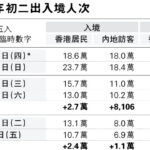Don’t miss Caribbean Community Theatre’s production of WAITRESS. There will be eight performances of this musical over three weekends: Fridays and Saturdays, Feb. 7-8, 14-15, and 21-22 at 8 p.m., as well as two Sunday matinees at 4 p.m: one on Feb. 16 and a final performance on Feb. 23.
 This uplifting and inspiring musical celebrating friendship, motherhood, and the magic of a well-made pie features original music and lyrics by six-time Grammy nominee Sara Bareilles and a book by acclaimed screenwriter Jessie Nelson. Nominated for four Tony Awards (including Best Musical), Waitress is inspired by Adrienne Shelly’s beloved film and offers a special recipe for finding happiness in unexpected places. Jenna, a waitress and expert pie maker, is stuck in a small town and a loveless marriage. Faced with an unexpected pregnancy, Jenna fears she may have to abandon the dream of opening her own pie shop…until a baking contest in a nearby county and the town’s new doctor offer her a tempting recipe for happiness. Supported by her quirky crew of fellow waitresses and loyal customers, Jenna summons the secret ingredient she’s been missing all along — courage.
This uplifting and inspiring musical celebrating friendship, motherhood, and the magic of a well-made pie features original music and lyrics by six-time Grammy nominee Sara Bareilles and a book by acclaimed screenwriter Jessie Nelson. Nominated for four Tony Awards (including Best Musical), Waitress is inspired by Adrienne Shelly’s beloved film and offers a special recipe for finding happiness in unexpected places. Jenna, a waitress and expert pie maker, is stuck in a small town and a loveless marriage. Faced with an unexpected pregnancy, Jenna fears she may have to abandon the dream of opening her own pie shop…until a baking contest in a nearby county and the town’s new doctor offer her a tempting recipe for happiness. Supported by her quirky crew of fellow waitresses and loyal customers, Jenna summons the secret ingredient she’s been missing all along — courage.
“A delicious tale that’s not…about getting Prince Charming but getting its heroine to take action and discover her worth!” — Variety
WAITRESS is directed by Michael Armendariz and Eileen Bishop Des Jardins, with music direction by Yoav Hayut, and choreography by Claire Goodman. Featured vocalists include Heather McRae (Jenna), Maddy Wilson (Dawn), Kristin McKown (Becky), Tyler Donohoo (Dr. Pomatter), Will Smith (Ogie), Ethan Washburn (Earl), and Keith Moore (Joe). The cast includes many talented dancers, singers, and actors such as Princess Edren O. Busque, Nico Forno D’Adamo, Allegra Ferreras, Amanda Kuczynski, Ava Moorman, Maya Prasad, Solé Rogers, Justin Smith, Daudi “Kalanji” Stout, Kalyani Walter Sundaram, and Annabet Walter. Musicians include Patrick Baron (piano), Mario Thomas (bass), Michael Belgrave (drums), Padraic Coursey (guitar), and Philippa Smith-Tyler (Keyboard).
All performances will be at the Caribbean Community Theatre at #18 Estate Orange Grove in Christiansted. Tickets are sold in advance online at Eventbrite, and at the CCT box office (for cash only) on show dates; CCT box office opens 45 minutes before curtain. Ticket prices are $25 for adults and discounts for seniors (age 65+) and students. For reservations, email [email protected]. Please arrive early for best seating and parking.
Due to adult content, this production of Waitress is not recommended for children under age 15, so please do not bring young children.
This project is jointly supported by a grant from the Virgin Islands Council on the Arts and the National Endowment for the Arts. This show is also co-sponsored by J. Benton Construction, Capital Mortgage Services of Texas, Christiansted Apothecary Hall, Ed & Stephanie Fletcher, Marshall + Sterling / Baker Magras, Team Consultants, Kristina VandenBerg, Susan & Crystal Atkins-Weathers, Armrey Industries, Crucian Gold, and Caledonia Communication Corporation (WSTX AM 970).
For more information, visit our website at www.cct.vi.
CCT— bringing live theater to St. Croix for 40 years and counting!














